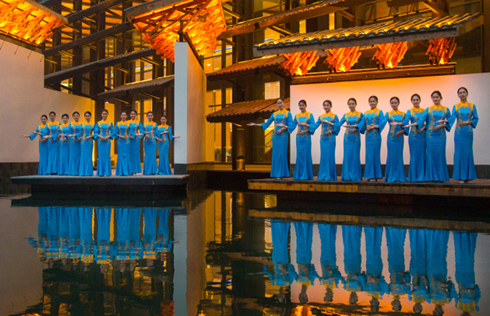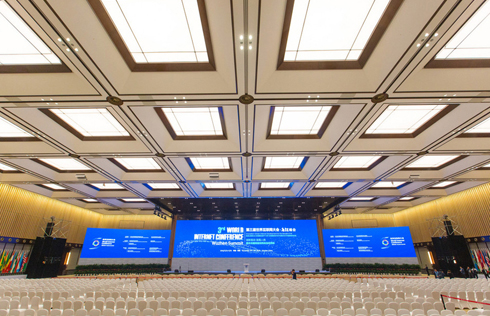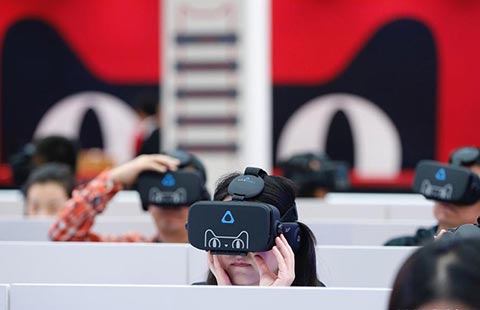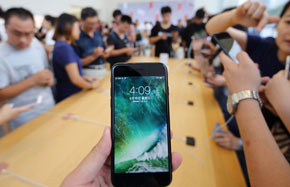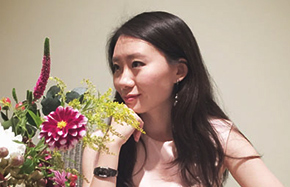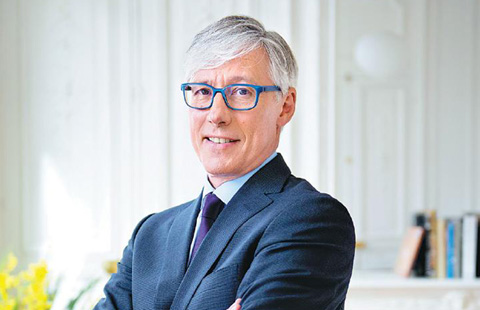AIIB president says US under Trump may join bank
 |
|
Jin Liqun, president of the Asian Infrastructure Investment Bank (AIIB). [Photo/Xinhua] |
The president of the young Asian Infrastructure Investment Bank (AIIB), Jin Liqun, is an exciting personality with sure words and mastery of the details of his office and firm.
The former top chief of the World Bank exudes firmness in his grasp of what the bank is and targets. It was a delight interviewing him at the AIIB headquarters in Beijing last weekend. The bank was created last year mainly at the behest of China on Christmas Day and commenced operation on January 17 this year. Apart from the founding member states, new members have joined including Canada that came in September after China hosted the G20 Summit. Egypt and South Africa are the only two African countries currently in the AIIB.
"The letter 'A' in AIIB can stand for Asia, Africa or America"
He hinted that irrespective of the phobia for the AIIB by the US at its inception, the possibility of the country joining the bank when the president-elect, Donald Trump, is in power cannot be ruled out.
He said: "I have heard a certain senior official of the President Barack Obama speak good of the AIIB and after Donald Trump won, I was told that many in his team have an opinion that Obama was not right not to join the AIIB, especially after Canada joined, which was a very loud endorsement of the bank. So we can't rule out the new government in US endorsing the AIIB or indicating interest to join as member."
Canada's membership became the 22nd non-Asian state member among the present 57 members. However, the test of the bank's popularity that started with a capital base of $100 billion, some 50 percent of that of the World Bank, is the line-up of close to 20 new countries intending to be part of the bank and most of them from outside Asia. At least, five of the new applicants are African countries. The Bank in October appointed Nigerian renowned economist, Dr Ngozi Okonjo-Iweala an adviser among nine others from all over the world.
The president restated the bank's willing to welcome new members as the old members with higher shareholding would drop more of their stakes to allow the new members have some shares, but after the next batch of members are admitted, Jin said there would hardly be any shares left for more countries to join. Very soon, the curtain would be drawn on the shortlist of the new members whose membership will take effect from January next year.
But the bank chief wants more African countries to join as he assured that the objectives of the AIIB includes assisting in the development of the smaller economies of the world no matter where located. To underscore the openness and overrule the phobia for it by US, Jin joked that "the letter 'A' in AIIB can stand for Asia, Africa or America. They all start with and that means the bank is for all of them."
"Our major consideration in extending facilities to governments or state members is whether such projects the fund would be used for will in any benefit of Asia and assist in bettering Asian economy and also that of the borrowing country. But we have a duty and obligation to ensure that we don't give impossible conditions to enable them utilize the funding and incentives of the bank. Every member state borrowing right is based not on the GDP but on shareholding and China has highest shareholding with 30?percent of the total volume. Right now, China is like a non-borrowing state member because if it does, it might crowd out other members that somehow need the fund more. But for the qualified borrower, the major plank for consent is on need and importance and not on shareholding capacity only. That implies that if a state needs to borrow and the AIIB is convinced that the need is compelling and there is prospect for profit in the targeted project the funding will be used for, the request would be granted as long as there is the collateral especially that of the economic potential of the project."
AIIB funding of project is predicated on factors like the sustainability, the environmental friendliness which implies how the project would not cause a serious imbalance in environmental protection. But in situations where the importance would impact and encourage development and fight poverty, the environmental impact factor might be played down provided it is not so weighty to create another big problem. The last factor is the social acceptability - implying that the people of the community the project is to be sited must be ok with it and it must target to improve on their livelihood.
"AIIB structure, projects and funding must be lean, clean and green. By these I mean that the membership must be manageable and not too bogus, and we believe that the more the better. The project funding must be clean and that means there must be no form of corruption in the process leading to the funding and in the execution. It has to be clean to the extent of encouraging a clean and non-polluted environment. As I said earlier, on this we also consider the benefits when the environmental impact is bearable. For instance, in the USA today, most of the states, or almost all the so-called 'Red States' still rely on coal power station for electricity and it is not foreseeable in the next 30 years that fossil fuel would be done away with because of the carbon emission. What is steadily done is ensuring its effect is minimized. So in a place we find that coal power plant for instance is needed as the only way the people would be assured of power supply enough to encourage economic growth, we will find a way of minimizing the emission effect and go ahead with the project to strike a balance."
US initial fear
Jin admitted that: "At the formation of the AIIB, the US, the base of the Bretton Wood Institutes that manage the world economy including the World Bank and the IMF, saw the new body as a threat to its dominance and importance in the world economic order. They raised issues on whether the bank's functions would be consistent with fundamental human and environmental rights of the borrowers or state members. We did our best to convince them that we were no threat or rivals or either naive as not to know the basic rules of operations. And moreover, we believe there is enough space in the global economic theatre for several bodies to operate, and many regional development banks operate side by side the World Bank and there is no reason the AIIB would be the violator. We rather need to work with and benefit each other to create a better world.
"For instance, Asia alone needs as much as $1tr infrastructure funding every year and the World Bank hasn't such pool of money to pick the bills therefore the need for an alternative. Moreover, if the AIIB exists just like the World Bank, there is no time the new body would embark on a project of building a power plant, airports, roads or seaport to boost the economy of any country that the World Bank will still vote funds for the same project. So if the AIIB handles one project and the World Bank takes another that is a lot better for the world towards defeating poverty and hardship."
On the management of the bank, the president stated that right now, the AIIB operates a lean workforce of about 90 workers and operates solely from the head office in Beijing as a strategy to save cost and may continue that way for a long time. He however hinted that with time as the need arises, the bank may operate little outlet offices just to handle needs as it would stick to the rule of cost effective management.
To make its operations adapt to global best practice standards, he said the AIIB adopts universal procurement approach to get the best manpower and equipment and also recruits experts from everywhere in the world based on their competence irrespective of whether the country of origin of such expert is a member of the AIIB or not. That way, it is sure to harness the best hands to run its operations.






